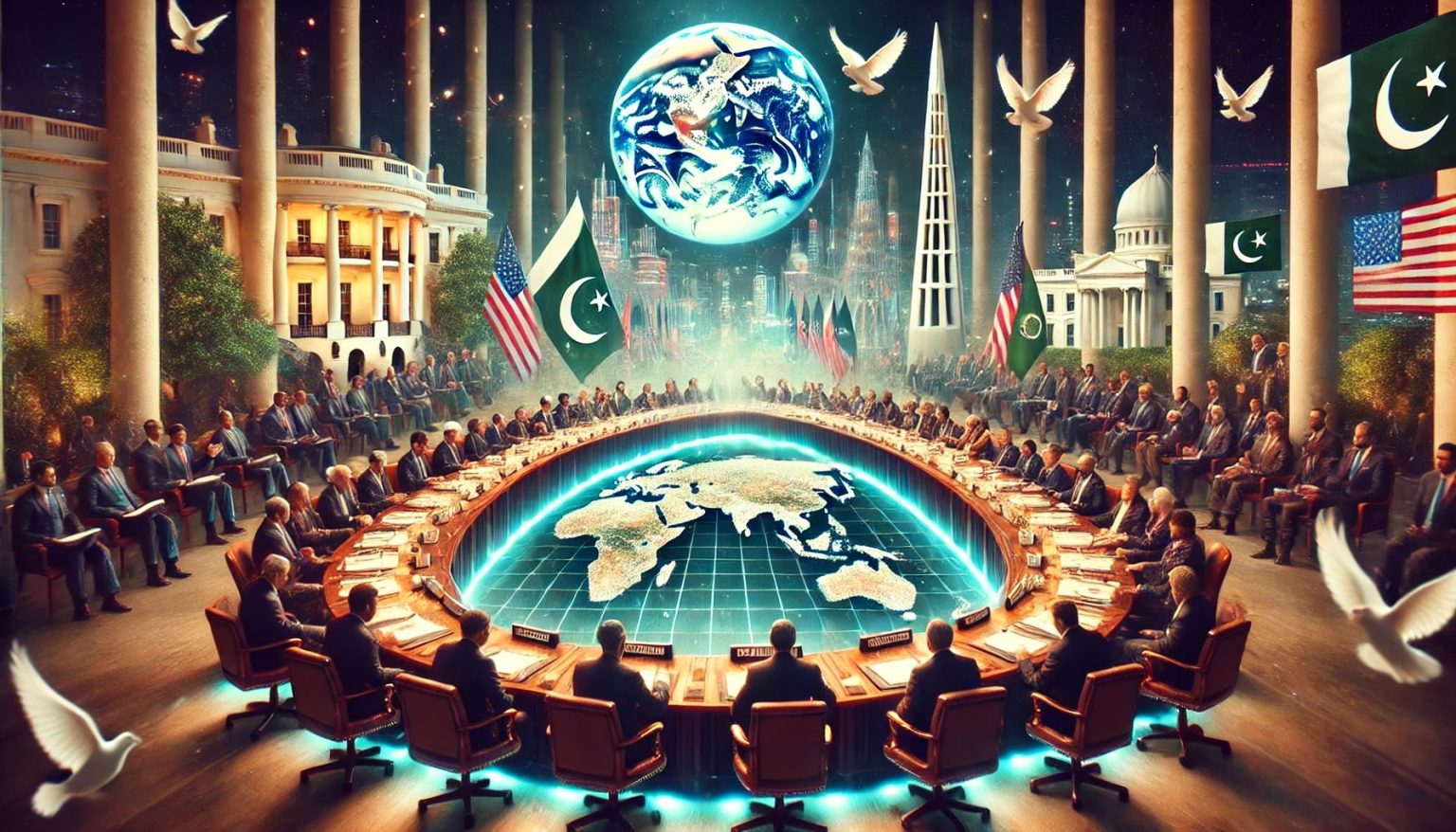President Donald Trump’s return to the White House may or may not prove auspicious for Pakistan. Trump’s victory will certainly have wide-ranging ramifications for the geopolitical chessboard because of existing challenges to international order. It could potentially transform the fabric of international cooperation. No region will remain untouched.
South Asia will be no exception. Most South Asian nations are betting their hopes on greater American engagement in the region despite Donald Trump’s “America First” approach to trade and foreign and security policy.
President Trump’s foreign policy will primarily focus outside South Asia and engage countries with a lens toward their relationship with China. Drawing on his known foreign policy orientation, Trump 2.0 is poised to keep India on a high strategic pedestal in the broader framework of Indo-Pacific strategy.
Pakistan is unlikely to play a major foreign policy role for the Trump administration. Thus, it is pertinent for the Pakistani diplomatic community to find areas of convergence with the Trump administration. Policy options must be exercised in a way to constructively approach strategic divergencies between the two states.
America’s engagement with the Global South is likely going to decline as an “America First” approach calls for reducing international engagement towards all but a handful of countries. Critics may characterize President Trump’s foreign policy approach as short term and transactional, but this sells the president short. A policy of “minilateralism” is not shortsighted but may allow him to focus on more pressing domestic issues in the United States. This redirection of focus is, however, bad news for global agendas like climate change and multilateral cooperation.
There is a broader consensus in the Trump team, based on a strategic imperative to counter China in the Asia-Pacific, that leaves less room for lower priorities. Thus, the trade and tariff wars between China and the US may have second-order effects for countries like Pakistan.
President Trump’s advisers are likely to approach China as an adversary and will view Pakistan with some caution, perceiving it as an ally of Beijing. The Trump administration may seek to intensify the competition with China and up the ante for countries who are onboard with Chinese infrastructure and development projects, such as Pakistan, which could be a potential victim of a new Great Game.
An era of conditional trade agreements between Pakistan and the United States appears imminent and is characterized by a departure from companionate or preferential trade practices. Instead, the US is likely to prioritize market-driven agreements, emphasizing economic pragmatism over diplomatic goodwill. To enhance bilateral trade relations, Pakistan could strategically leverage its geopolitical significance and pursue a proactive approach to addressing American concerns, without compromising its national strategic interests.
This would necessitate credible efforts to combat terrorism and contribute to stabilizing the situation in Afghanistan. Such measures could foster greater mutual confidence and pave the way for more constructive economic engagement between the two nations.
American attempts to make India its strategic surrogate in the Asia-Pacific will embolden Indian hegemonic ambitions. Intense security collaboration between the US and India at bilateral and multilateral defense groups like the Quad could disrupt the regional strategic stability calculus in South Asia.
Pakistan’s economic woes may not allow it to sustain the brunt of a growing Indian strategic modernization in the long run. This will impact strategic stability in the region.
Retrospective analysis of the first Trump administration suggests that American cooperation with Pakistan, in the realms of climate change and clean energy, will be relegated as more pressing geostrategic issues take precedence. Moreover, the dwindling economy of Pakistan may find the Trump administration far less sympathetic as far as economic aid and loan packages are concerned. The first Trump administration was less sensitive to Pakistan’s core interest, like Kashmir, and more demanding of Pakistan in its Afghanistan conundrum.
The US State Department under Trump will likely pursue a limited set of priorities, especially in the security and counterterrorism realms. US-Pakistan relations are traditionally marked by events in Afghanistan. This was true from the Soviet invasion of Afghanistan to the war on terror. With the reduction of American engagement in Afghanistan, Pakistan finds itself entangled in an increasingly intricate security matrix amid deteriorating relations with the Taliban and increasing terrorism in Pakistan.
Shifting the onus onto Pakistan for an American policy debacle was a convenient strategy of the Biden administration. Pakistan may find the new administration more aggressive in its demands for stabilizing Afghanistan. The “do more” mantra will not go over well with Pakistan anymore and will require a more practical approach on the part of the US.
On the flip side, President Trump’s personality-centered diplomatic overtures, rather than institutionalized mechanisms, are not good for Pakistan. President Trump engaged with Imran Khan constructively, but he is no longer in office. Criticism could come from Trump’s team regarding the crackdown on Khan’s Pakistan Tehreek-e-Insaf (PTI) movement. State Department and Pentagon engagement with Pakistan’s diplomatic corps and security establishment will depend on the whims of Trump rather than an ongoing policy framework. The absence of mutual interests between the US and Pakistan remains a hurdle.
These are interesting times for the diplomats of Pakistan. On the one hand, they will try to resist President Trump’s pressure-based strategy toward Pakistan. On the other hand, they will try to convince State Department officials to pursue more practical approaches to the US-Pakistan relationship. How hard this proves is yet to be determined. Either way, Pakistan will face a more conditional and transactional relationship with the US. It will hinge on security concerns rather than economic issues. Being close to China diplomatically and strategically opens a unique window of opportunity for Pakistan. It can play the role of a bridge between China and the US, as it has done historically, should the Trump administration seek it out.
This article was published in another form at https://globalsecurityreview.com/the-future-of-us-pakistan-relations/
Muhammad Haseeb Riaz is a Research Assistant at Center for International Strategic Studies (CISS), Islamabad.

